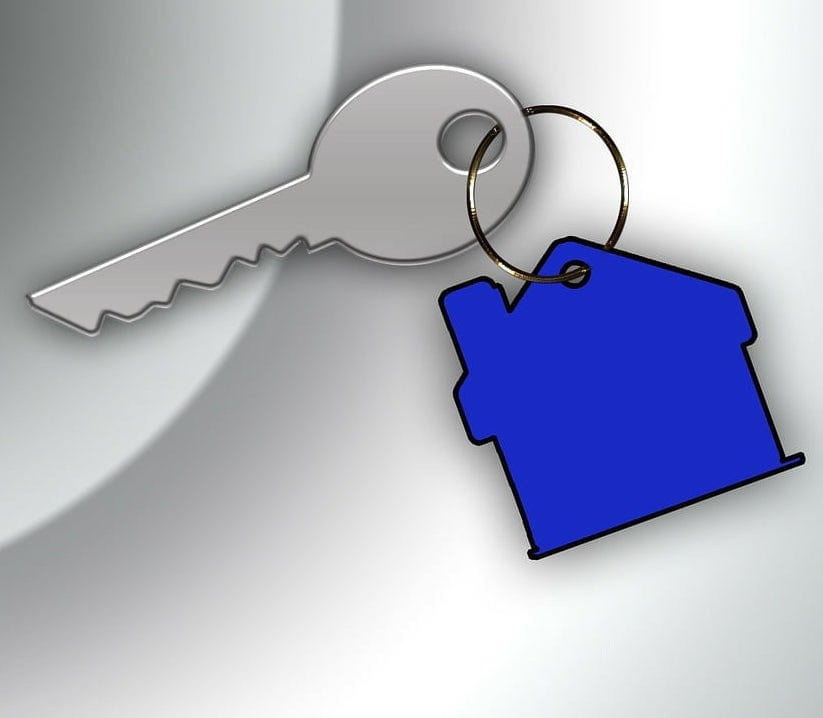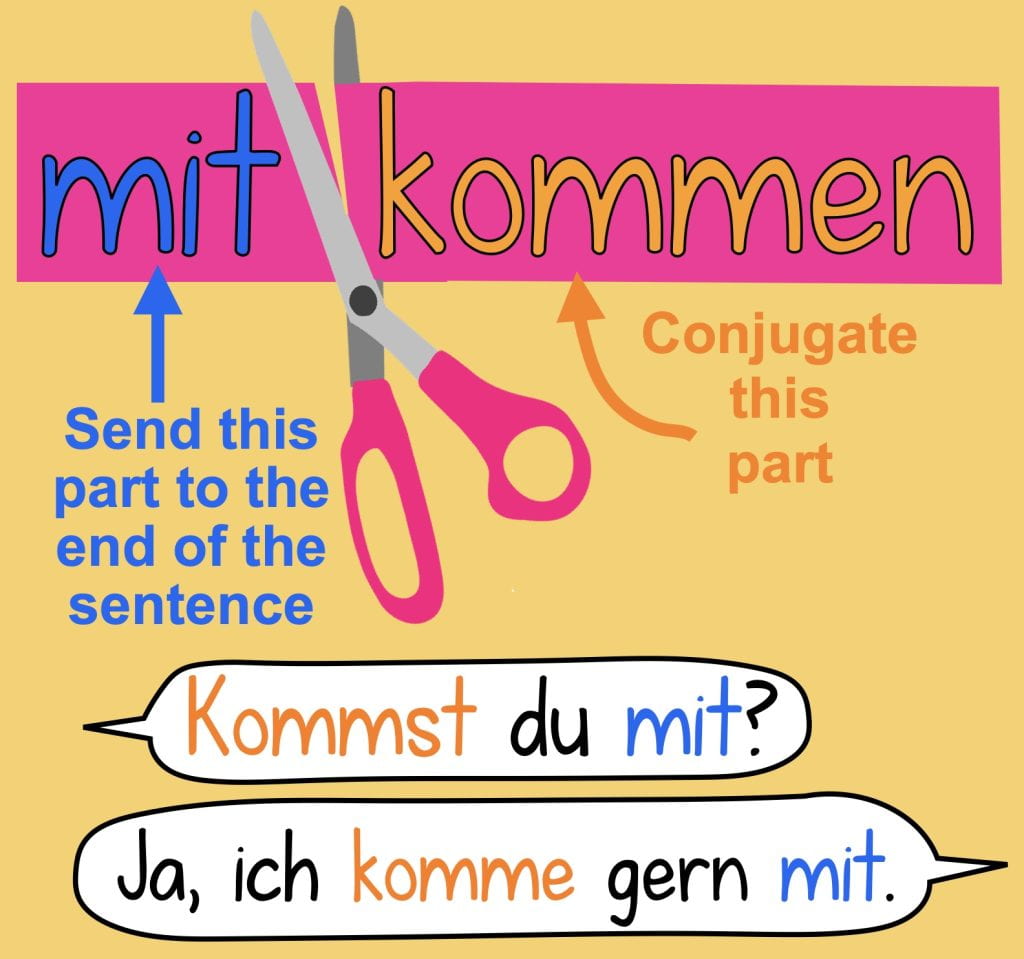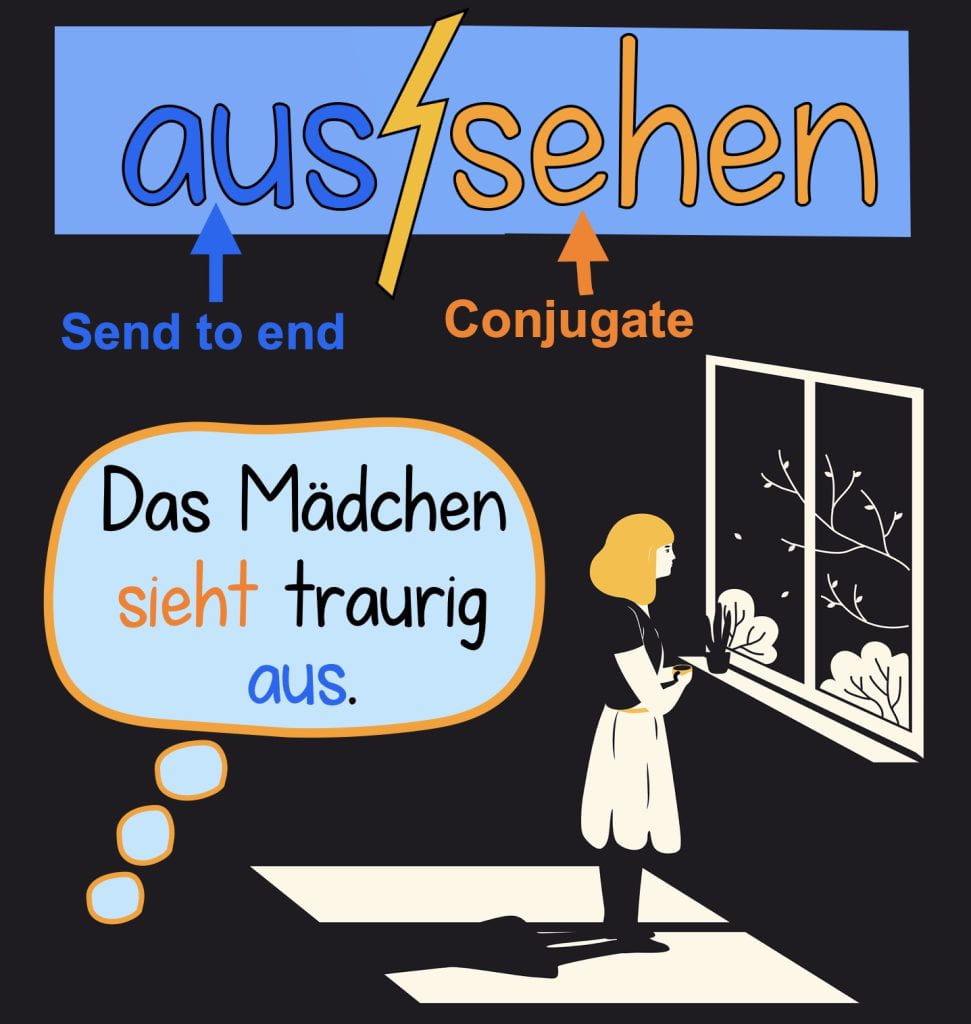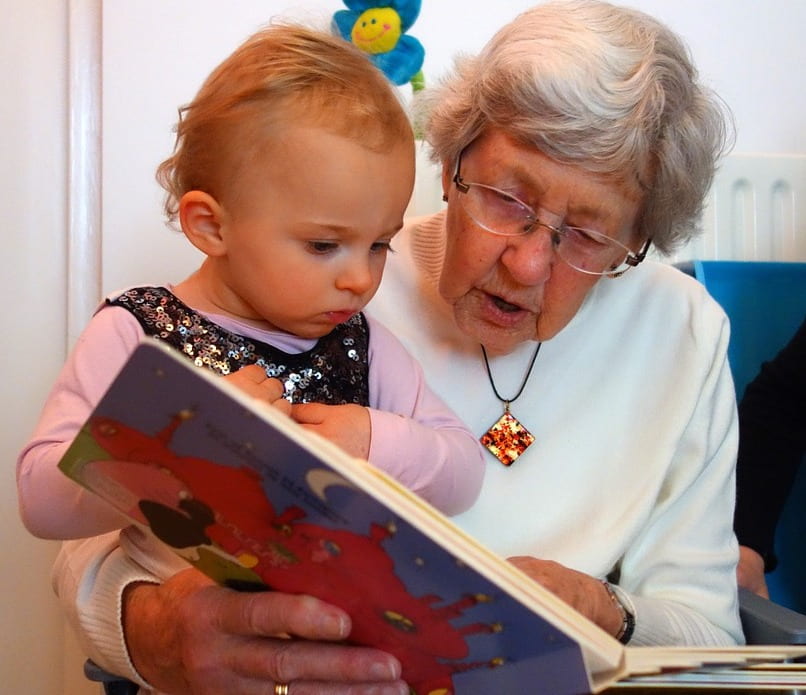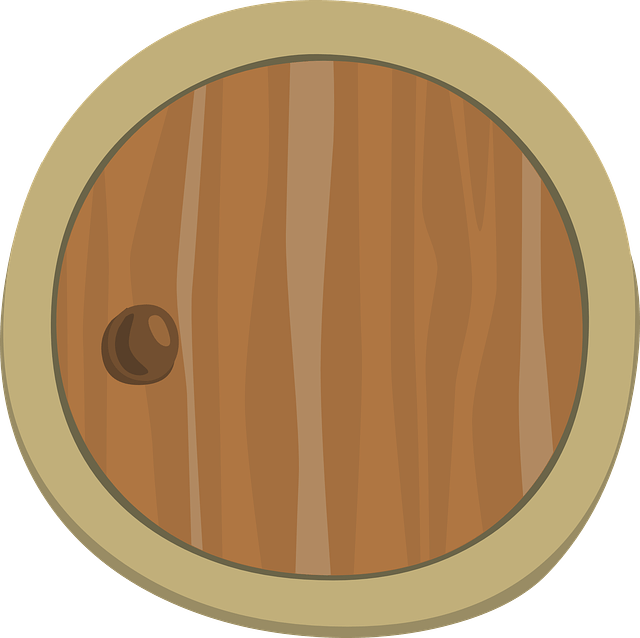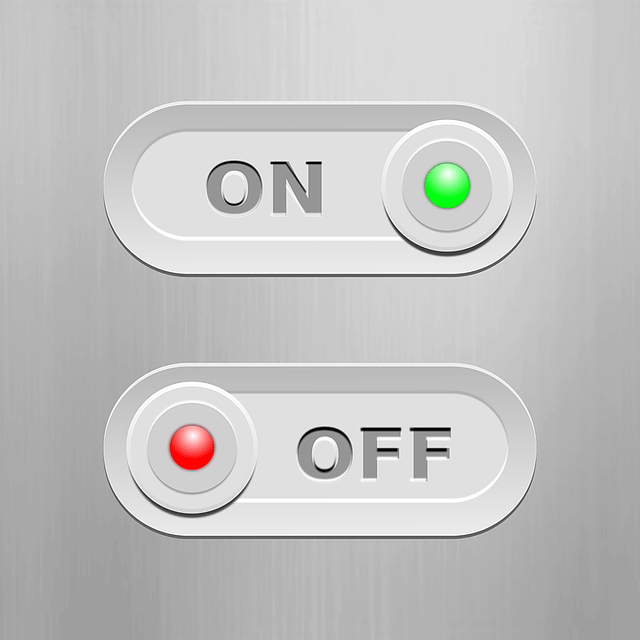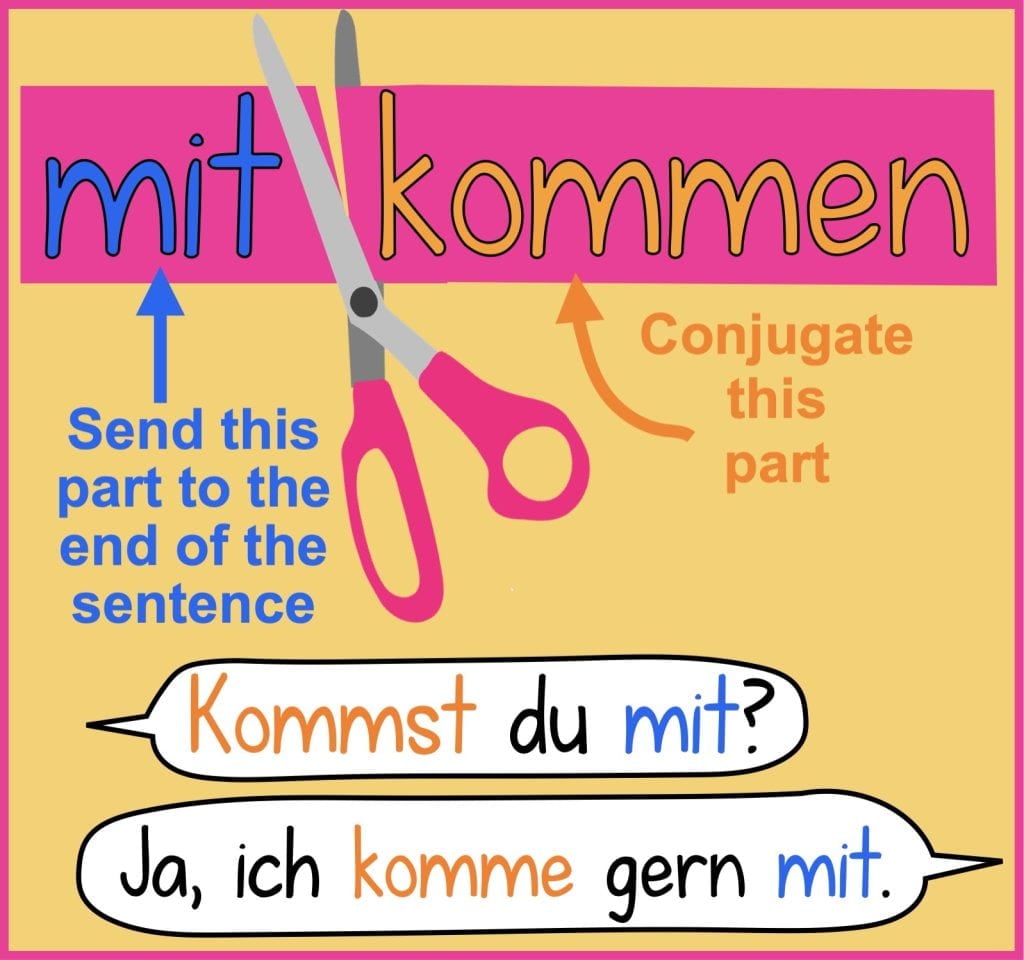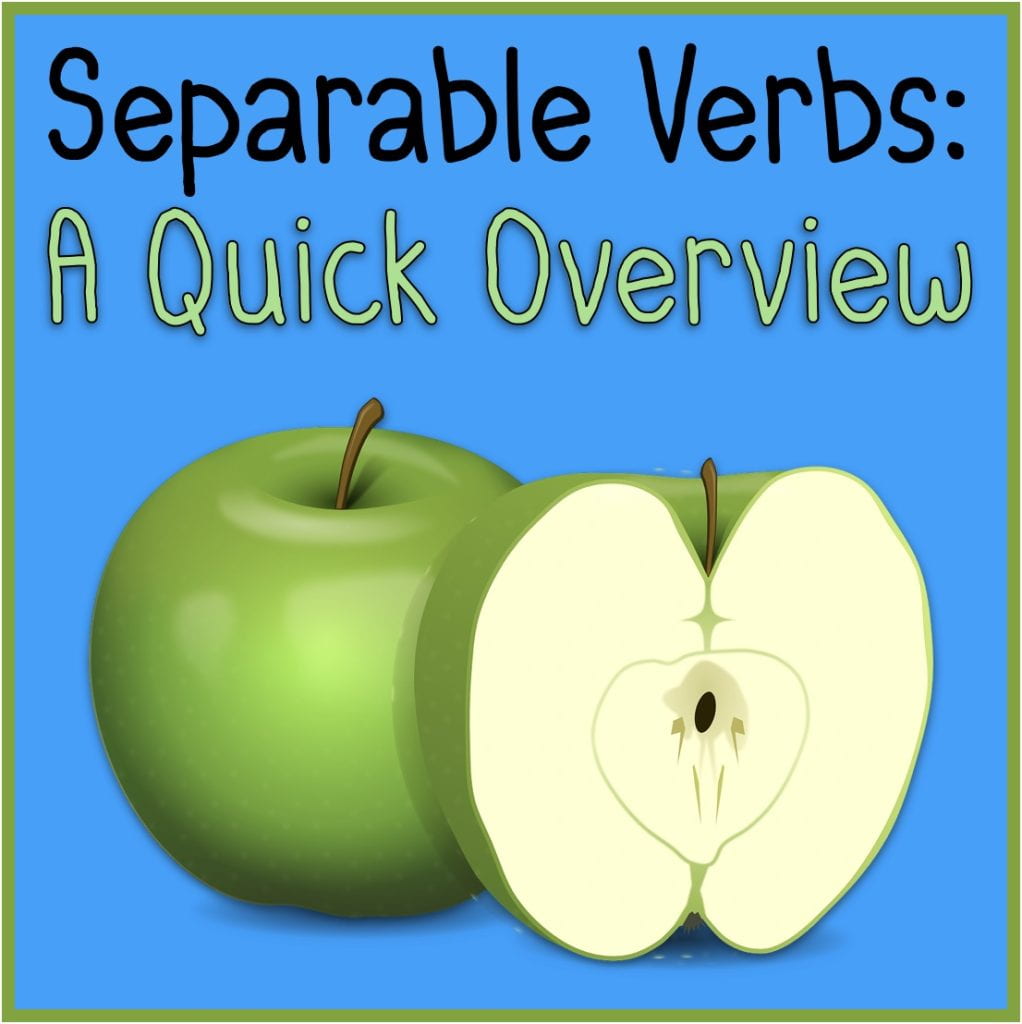Published in December 2022 by Roslyn Green
Learning Separable Verbs as Opposites ↔
Many of the verbs below have multiple meanings. The examples focus only on the meaning that represents a precise opposite of the other verb. This list includes some commonly used and practical choices, but it is far from comprehensive.
Quiz 1: Separable Verbs as Opposites
Quiz 2: Trennbare Verben und Gegenteile
Bildlexikon und Beispiele | Picture Dictionary and Examples

Image by OpenClipart-Vectors from Pixabay
aufwachen → to wake up
Am Wochenende wache ich früh auf, obwohl ich gern länger schlafen würde. – I wake up early at the weekend, although I’d like to sleep longer.
einschlafen → to fall asleep
Mein Mann schläft sehr schnell ein, während ich wach bleibe und über alles nachdenke. – My husband falls asleep very quickly while I stay awake thinking about everything.

Image by 👀 Mabel Amber, who will one day from Pixabay
sich anziehen → to get dressed
Sie zieht sich immer elegant an. – She always dresses elegantly.
(sich) ausziehen → to get undressed
Zieh dir die Stiefel aus, die sind voller Schlamm. – Take off your boots, they’re covered with mud.

Image by OpenClipart-Vectors from Pixabay
anmachen → to turn on
Kannst du die Lampe💡 anmachen? Ich brauche mehr Licht zum Lesen. – Can you turn on the lamp? I need more light to read.
anschalten → to switch on
ausmachen → to turn off
Sie machte den Fernseher 📺 aus, weil sie die Reality-Show langweilig fand. – She turned off the TV because she found the reality show dull.
ausschalten → to switch off
aufmachen → to open
Ich habe das Fenster aufgemacht, denn wir brauchen frische Luft in diesem muffigen Raum. – I’ve opened the window because we need fresh air in this musty room.
zumachen → to close
Mach bitte die Tür 🚪 zu, mir ist kalt. – Please close the door, I feel cold.

Image by Kristijan Puljek from Pixabay
anfangen → to begin
Vor zehn Jahren habe ich angefangen, Deutsch zu lernen. – Ten years ago, I began to learn German.
aufhören → to stop
Ein Freund von mir versucht, mit dem Rauchen aufzuhören. – A friend of mine is trying to stop smoking.
einziehen → to move in
Unsere Tochter möchte bei ihren Freundinnen einziehen. – Our daughter would like to move in with her girlfriends.
ausziehen → to move out
Er will aus diesem Haus ausziehen. → He wants to move out of this house.

Image by Chu Viết Đôn from Pixabay
aufsteigen → to mount, get on
Die Frauen werden bald auf ihre Fahrräder aufsteigen und nach Hause fahren. – The women will soon get on their bikes and ride home.
absteigen → to dismount, get off
Steig von deinem Fahrrad ab. Auf dieser Brücke darfst du nicht fahren. → Get off your bike. You’re not allowed to ride on this bridge.

Image by 👀 Mabel Amber, who will one day from Pixabay
herkommen → to come (towards the speaker)
Komm mal her zu mir! – Come here!
Also used to ask about origins: Wo kommst du her? – Where do you come from?
weggehen → to go away (from the speaker)
Geh weg, lass mich in Ruhe! – Go away, leave me alone / in peace.
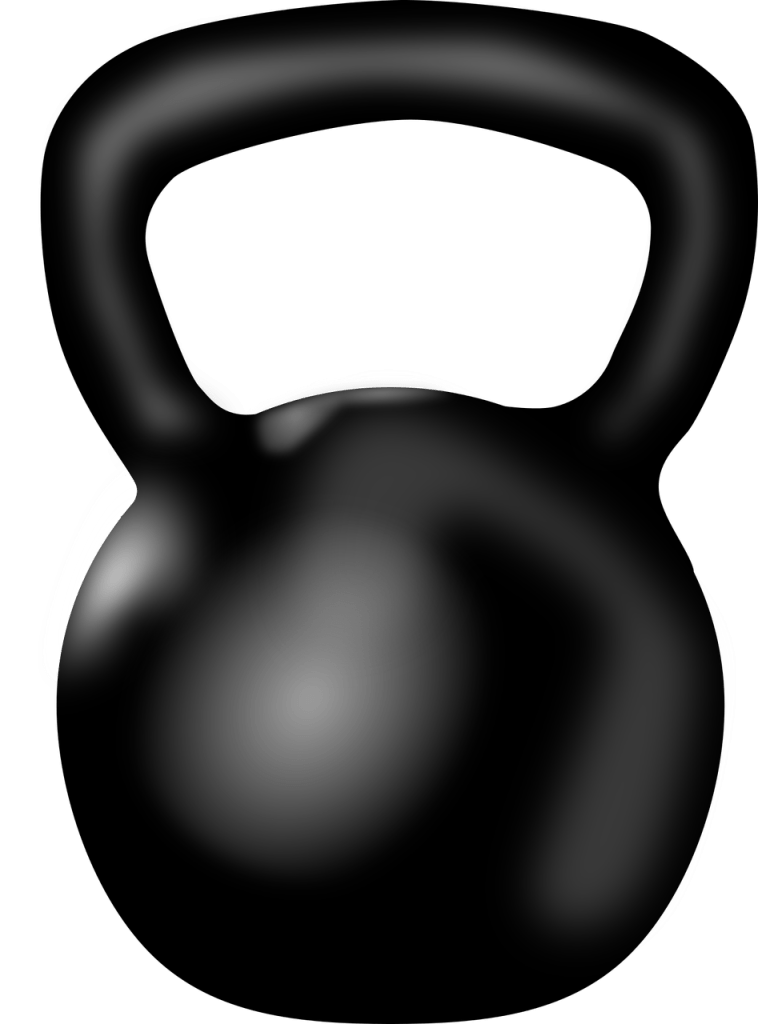
Image by OpenClipart-Vectors from Pixabay
zunehmen → to put on weight
Während des Lockdowns habe ich drei Kilogramm zugenommen. – During the lockdown I gained three kilograms.
abnehmen → to lose weight
Jetzt möchte ich ein paar Kilo abnehmen und fit werden. – Now I’d like to lose a few kilos and get fit.

Image by Mohamed Hassan from Pixabay
glattgehen → to go smoothly
Die ganze Reise ist glattgegangen. Der Reiseführer war einfach genial. – The whole trip went smoothly. The guide was simply brilliant.
schiefgehen → to go wrong
Bei uns ist alles schiefgegangen. Nichts ist ausgegangen, wie wir es geplant hatten. – Everything went wrong for us. Nothing turned out as we had planned.

Image by AC works Co., Ltd. from Pixabay
absagen → to cancel, call off or turn down
Zuerst wollte sie auf die Feier kommen, aber dann hat sie abgesagt. – At first she wanted to come to the party, but then she cancelled.
zusagen → to accept an invitation or offer
Ich habe fünf Freunde eingeladen und vier haben schon zugesagt. – I have invited five friends and four have already accepted.
einsteigen → to board, get on
Es war schwierig, mit so viel Gepäck einzusteigen. – It was difficult to board with so much luggage.
aussteigen → to get out or off, disembark
Das ist die Haltestelle, wo ich aussteige. – This is the stop where I get off.
Note: The verb aussteigen can also mean “to opt out” of something or to reject mainstream society and try something new.
aufbauen → to set up, build or assemble
Die Teenager können das Zelt in zwölf Minuten aufbauen.
abbauen → to dismantle, take down
Früh am Morgen haben sie das Zelt abgebaut. – Early in the morning, they dismantled the tent.
Note: This verb also has important figurative meanings: Stress abbauen – to relieve stress; Vorurteile abbauen – to break down prejudices, etc.

Image by 👀 Mabel Amber, who will one day from Pixabay
aufsetzen → to put on (a hat, glasses, etc.)
Die junge Frau setzt immer einen Strohhut und eine Sonnenbrille auf, bevor sie am Strand spazieren geht. – The young woman always puts on a straw hat and sunglasses before going for a walk at the beach.
absetzen → to take off (a hat, glasses, etc.)
Der alte Mann vergaß vor dem Einschlafen, seine Brille abzusetzen*. – The old man forgot to take off his glasses before falling asleep.
*The verb abnehmen is also possible in this context.
sich einmischen → to interfere, to meddle, butt in
Mein Stiefvater hat sich in unseren Streit eingemischt, was mich genervt hat. – My stepfather got involved in our argument, which annoyed me.
sich raushalten → to stay out of something, avoid interfering
Ich wollte ihm sagen: „Es geht dich nicht an, halt dich da raus!” – I wanted to say to him, “It’s none of your business, stay out of it!”
losfahren → to drive off, away
Meine Schwester ist gerade losgefahren. – My sister has just driven off / left.
anhalten → to pull up (in a car), stop
Der Autofahrer musste an der Ampel anhalten. – The driver had to stop at the light.
Quizzes

Quiz: Separable Verbs as Opposites
Choose the correct verb or prefix in a range of sentences based on the examples above. Fix these pesky separable verbs in your memory for ever.
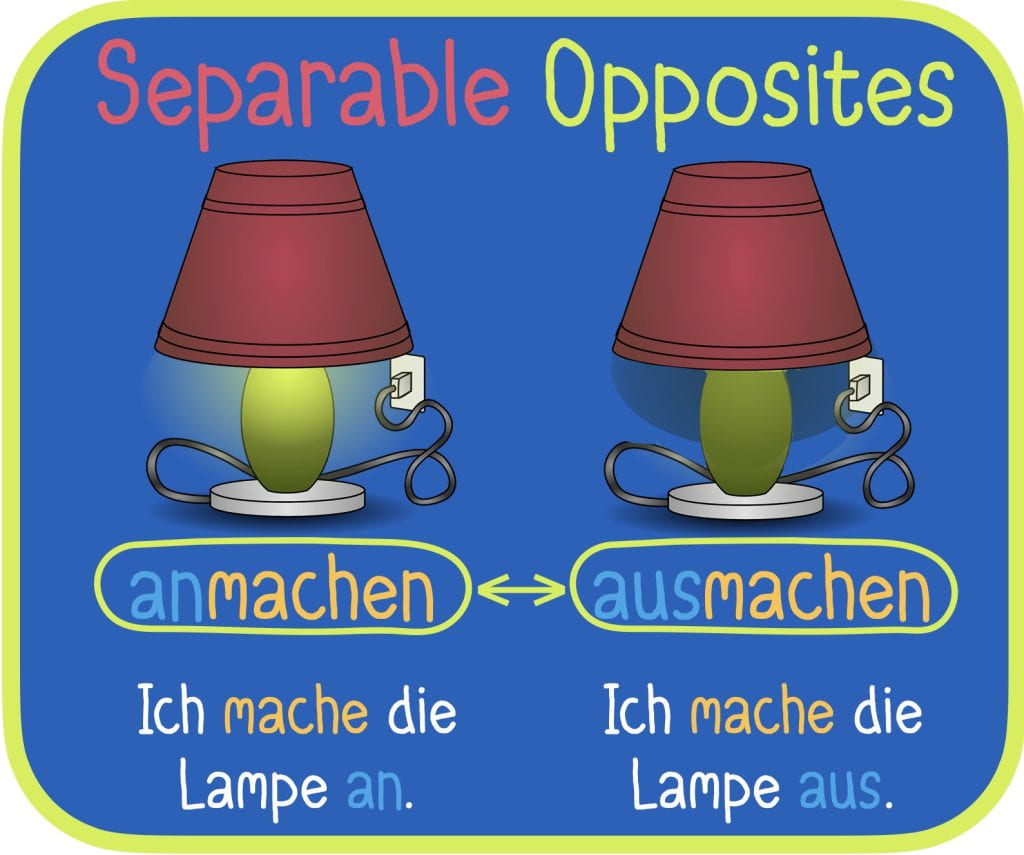
Quiz: Trennbare Verben und Gegenteile
Type the missing words in sentences that include 8 pairs of the verbs above. Click on the help lightbulb to read the vocabulary list.

